[et_pb_section fb_built="1" admin_label="section" _builder_version="4.16" global_colors_info="{}"][et_pb_row admin_label="row" _builder_version="4.16" background_size="initial" background_position="top_left" background_repeat="repeat" global_colors_info="{}"][et_pb_column type="4_4" _builder_version="4.16" custom_padding="|||" global_colors_info="{}" custom_padding__hover="|||"][et_pb_text admin_label="Text" _builder_version="4.16" background_size="initial" background_position="top_left" background_repeat="repeat" global_colors_info="{}"]
Every year on the third Thursday in April, the world celebrates International Girls in ICT Day. Girls in ICT Day is celebrated to raise awareness about the importance of promoting girls' participation in the field of Information and Communication Technology (ICT) using strong female role models in ICT-related fields and science, technology, engineering, and mathematics (STEM) careers.
Like many regions, Africa faces a significant gender gap in the ICT sector. Girls in ICT Day raises awareness about this gap using role models to encourage girls to consider careers in technology, thereby helping to address disparities in access to and participation in the ICT industry. According to ITU, Digital technologies are an essential pathway to gender equality and empowerment of all women and girls. Achieving the United Nations Sustainable Development Goals (SDGs) will not be possible until we close the digital gender gap.
Africa's economy is increasingly reliant on technology and digital innovation. Encouraging more girls to enter the ICT sector helps to build a skilled workforce capable of driving innovation and economic growth in the region.
This year, we have put together a digital campaign that features voices of leading women in ICT drawn from National Regulatory Authorities (NRAs) and iPRIS partner organisations across Africa.
2. Dr. Caroline Wamala-Larsson (Director of SPIDER)
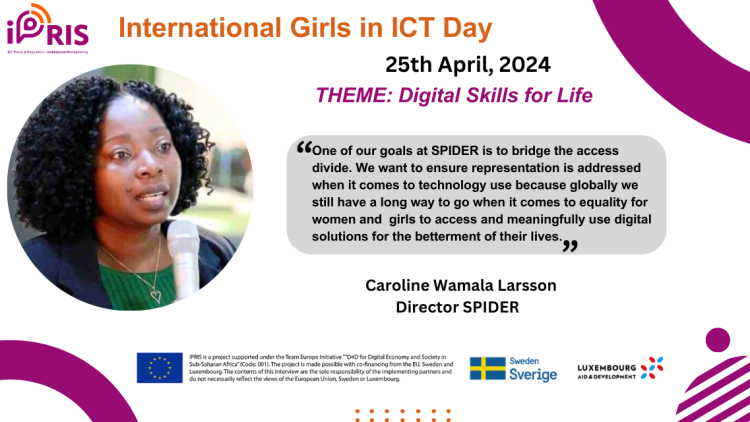
3. Dr. Emma Anna Otieno (Deputy Director, Communications Authority of Kenya)
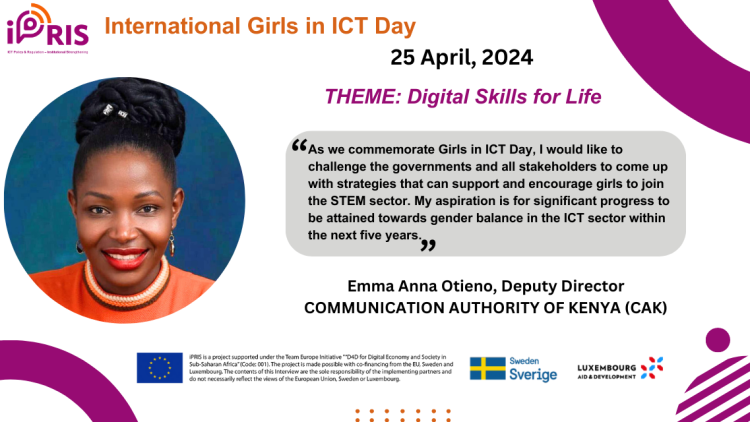
4. Ms Minenhle Rollaine Masuku (Quality Services Engineer Eswatini Community Commission (ESCCOM)
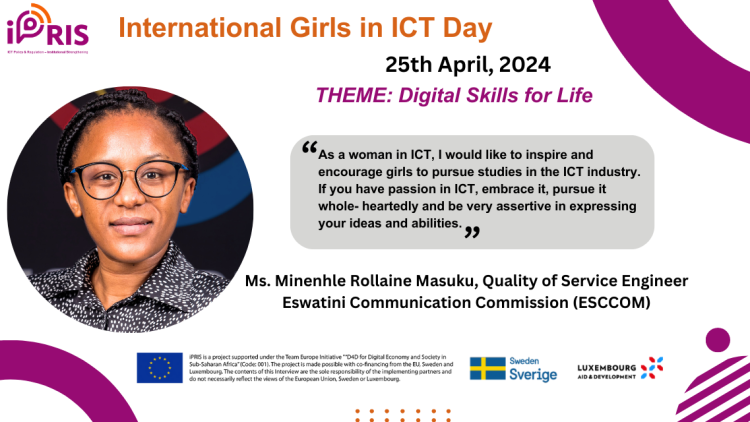
5. Dr. Katja Sarajeva (Program Manager ITP Network and Researcher at SPIDER)
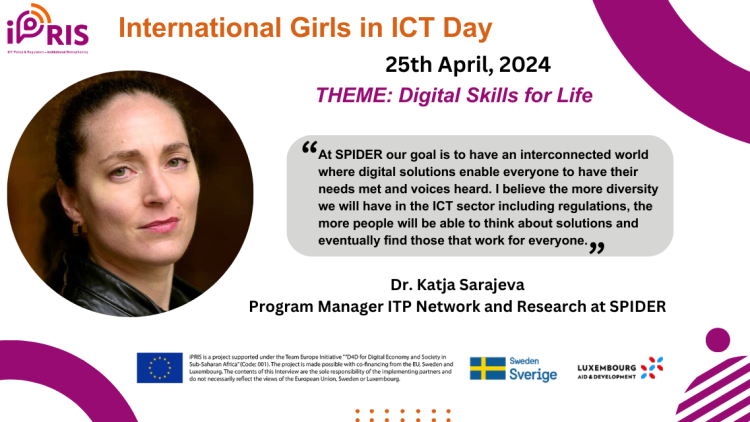
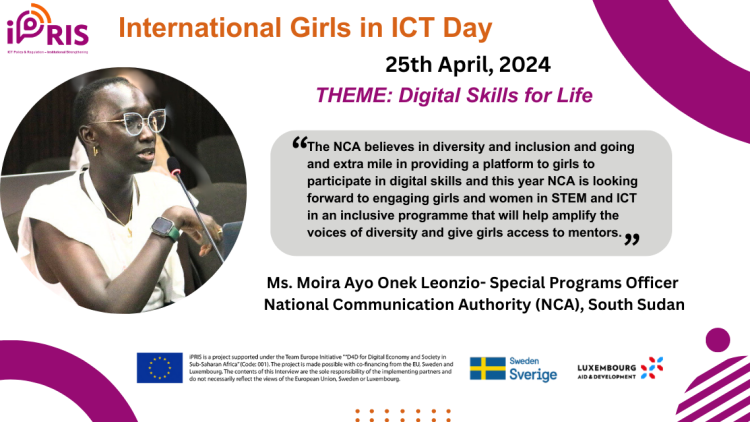
The role of iPRIS
ICT Policy & Regulation – Institutional Strengthening (iPRIS) contributes to bridging the digital divide by boosting the capacities of African telecommunications regulatory bodies. Targeting 43 countries in Africa, iPRIS aims to enhance inclusive digital connectivity and drive social and economic prosperity using ICT.
iPRIS is funded by the European Union, Sweden, and Luxembourg as part of the Team Europe Initiative “D4D for Digital Economy and Society in Sub-Saharan Africa” (Code: 001). The project aims to provide inclusive peer-to-peer capacity-building for African National Regulatory Authorities and Regional Regulatory Organisations, recognising the significance of ICT policies and regulation in promoting digital inclusion, equitable access to the Internet, consumer rights protection, and personal data safeguarding.
By highlighting the achievements of women in ICT and providing role models for young girls, the iPRIS girls in ICT campaign helps to break down notable barriers such as:
Addressing the gender gap
Efforts to address the gender gap in ICT in Africa include initiatives to promote STEM education for girls, provide digital skills training and mentorship programs, support women's entrepreneurship in the technology sector, and advocate for policies and practices that promote gender equality and inclusivity in the ICT workforce.
While progress has been made in some areas, there is still much work to be done to ensure that women and girls in Africa have equal opportunities to participate and succeed in the ICT sector. Continued investment in education, skills development, and gender-responsive policies and programs is essential for closing the gender gap and harnessing the full potential of Africa's digital economy. Girls in ICT Day encourages girls to pursue their interests in technology without fear of discrimination or bias.
For more media related queries/ more information about iPRIS
Please contact,
Ms.Edna Soomre - Project lead, iPRIS
Email: ipris@spidercenter.org
www.ipris.digital
[/et_pb_text][/et_pb_column][/et_pb_row][/et_pb_section]
Borgarfjordsgatan 12, Kista,SWEDEN
Postal Address: Stockholm University, Department of Computer and Systems Sciences/DSV, SPIDER, P.O Box 1073, SE-164 25 Kista, Sweden
Copyright © 2024 iPRIS. All rights reserved.